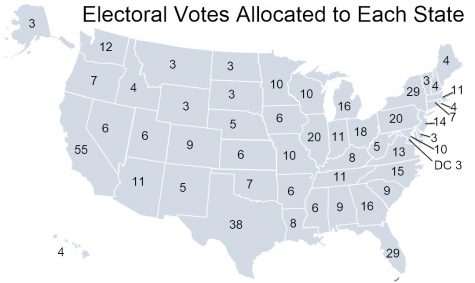Lunar New Year and Diwali Off Head-to-Head
March 3, 2019
PRO
“In East Asia, Chinese New Year is held as highly as Christmas,” Katie Xu (’21) said.
Chinese New Year, or Lunar New Year, typically falls in January or February, and it is celebrated in China, Taiwan, Hong Kong, Korea, Vietnam, Laos, Singapore, and in many other parts of Asia.
The Lunar New Year meant three weeks off from school to my mother who grew up in Taiwan. It meant cleaning the entire house top to bottom, big dinners with relatives from all over the country, praying at temples, and setting off firecrackers in the streets.
In St. Louis, my family meets with friends and spends an entire day cooking and eating. At the end of the night, parents give out red envelopes with money, and later in the week, we pray and burn incense for a good start to the year.
Yet, Burroughs has never allowed time off for students to celebrate this holiday. Jewish students can observe Rosh Hashanah and Yom Kippur without worrying about making up for missed classes. Christian students can rest assured that winter break will never fall before or after Christmas. However, holidays like Diwali and the Lunar New Year are not afforded the same consideration.
Students among the Burroughs community, however, do want to have other holidays off from school. At a minimum, they want them to be taken into consideration.
“Having Diwali off would be so nice,” Vinya Reddy (’20) and Diya Krishnan (’20) agree. Sriya Bandi (’20) suggests, “Teachers could give lighter workloads that night.”
Opponents often argue that there is no need to have the Lunar New Year off in America, a whole ocean away from Asia. While it may be true that the majority of students at Burroughs do not observe holidays like the Lunar New Year and Diwali, it is the thought that matters.
“It’s not the same if individual students have to ask for the day off,” Xu 21’ points out. Having no classes on a holiday shows respect for the students who observe the holiday and who might need extra time to perform rituals, go to services, or celebrate with family. “It would be nice to know that our school respects our culture enough to give us that day off,” Xu concludes.
The Burroughs’ website states that the school is “dedicated to providing an open, supportive, challenging and stimulating environment for everyone in the Burroughs community” and that this claim is “not just rhetoric.”
If that’s the case, Burroughs should strive to uphold its dedication to diversity. Burroughs should ensure that all students, regardless of religion or culture, feel that their beliefs are not only recognized by the school, but also valued. Giving holidays like the Lunar New Year and Diwali off is only one of many ways to accomplish this.
I’m not seriously advocating for the Lunar New Year off, because it’s unlikely that the school administration would ever agree, and there isn’t much opportunity for Lunar New Year festivities in suburban Missouri anyway. I do believe, however, that the school should acknowledge its existence along with the students who celebrate it.
Even if Burroughs has class on the Lunar New Year – and we all know Burroughs students love to have class, especially if a snowstorm hits Ladue – there are other, more plausible ways that the Burroughs community can celebrate the Lunar New Year.
MICDS, for example, offers Chinese food along with various activities like calligraphy during the Lunar New Year, and the head of school holds a dinner at her house. There are so many ways Burroughs could observe the holiday, whether it is through offering traditional Chinese snacks, inviting speakers, performers, or dancers, or small activities like calligraphy, lantern-making, or chopstick games. Are we really going to let the school down the road beat us?
CON
It’s now late February, which means that Lunar New Year celebrations are finally winding down throughout Asia. For many Asian countries, such as China, Korea, and Vietnam the Lunar New Year means at least three days of leave from school and work.
Let’s imagine a world in which Burroughs received a day or two off at the start of the Lunar New Year. Well, there’s a bit of a problem with that — which Lunar New Year are we even talking about here? The literal Lunar New Year (i.e. the first day of the lunar year)? Or one of the many Lunar New Year festivals?
The Lunar New Year is a holiday that is celebrated by nearly all of Asia, and different countries have different ways of determining the start of the New Year. China starts its Spring Festival on the first day of the first lunar month. Tet, the Vietnamese new year, starts on the 15th day of the first lunar month, which happens to be the last day of Chinese New Year. This does even consider the various new years in southeast Asia that start in April. So, what are we supposed to do? Should Burroughs start handing out days off for every new year’s celebration across the world?
Obviously, there are some serious issues in deciding when we should have a day off for the Lunar New Year, so let’s compare it with a “new year” that we do have off: Rosh Hashanah, the Jewish New Year. Unlike most Lunar New Years, Rosh Hashanah is a religious holiday with a clearly defined demographic — the Jewish people. Burroughs takes Rosh Hashanah off in order to respect a smaller and potentially ignored portion of its community, but its only capable of doing this because the community that celebrates Rosh Hashanah is clearly defined. Doing the same for a group like “Chinese people” or even just “Asian people” is just an overgeneralization.
Although it’s always nice for us to have an extra day off, the idea of taking a day off for the Lunar New Year is fundamentally flawed. Burroughs is an institution that is always seeking to recognize the diversity of its community, but the many challenges involved in giving a break for the Lunar New Year mean that any result would be a sweeping generalization that fails to live up to that lofty ideal.







